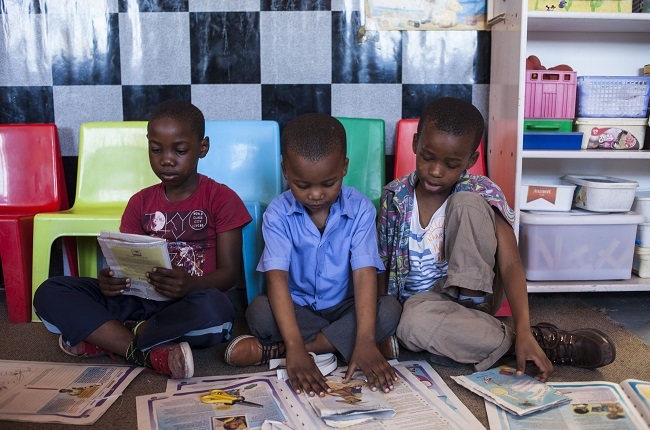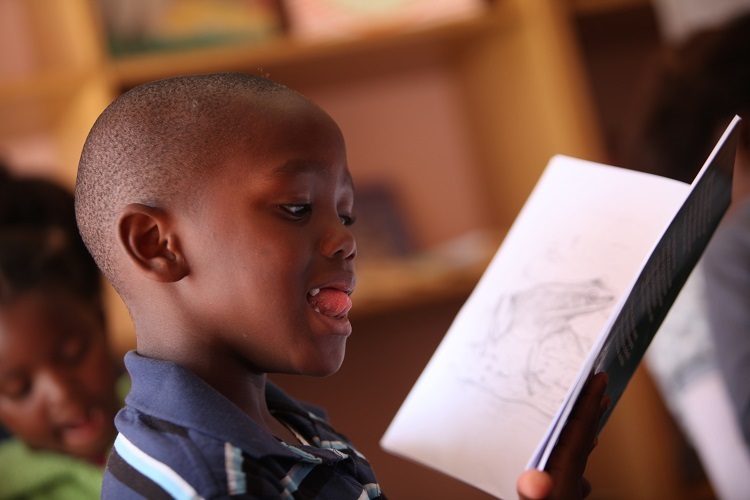
Reading makes stories interactive, stimulating, exciting and educational. It is even more invigorating when children read the stories in a language they understand.
Nal'ibali stories have given children a sense of pride with their multilingual stories, which are available across the country. Starting with English-isiXhosa, English-isiZulu, and English-Afrikaans language combinations in 2012, no one knew that 10 years later, stories would be available in six more language combinations, including Tshivenda, their newest addition.
From Monday, 28 March, Tshivenda-speaking children and their families have been able to enjoy printed stories in their home language for free from the Nal'ibali reading-for-enjoyment campaign.
Parents, reading club leaders and other adults who run literacy programmes are invited to sign up to receive free copies of the new Tshivenda edition of Nal'ibali's story "supplement".
READ: 'They seemed magical': Local biologist shares the inspiration behind her first children's book.
The story supplement – affectionately known as "the Nal'ibali" by children and households across the country – is a multilingual newspaper booklet that contains three children's stories, reading and writing activities, and tips and information for adults on how to read and enjoy stories with children.
Ten thousand Tshivenda copies will now be printed per edition and published once a month, at least 10 times a year.
Katie Huston, acting director of Nal'ibali said: "Reading and being read to in your language should not be considered an optional extra for children. It's an essential and powerful part of learning to read. When you regularly read to children in their home languages, you give them a strong foundation that makes not just reading, but all learning easier."
Huston says the reason for this is three-fold:
1. The foundations of language are laid and set early before children reach Grade R.
2. Children who are regularly exposed to significant and well-told stories in their languages are better prepared to learn to read and write when starting school.
3. Having a deep and extensive vocabulary in their mother tongue better enables children to learn a second language, like English.
Also read: Eradicating the stigma - Local author tells us about his children's book on African Spirituality.
Language gives structure to our thoughts.
Ntshengedzeni Edward Mudau of the Pan South African Language Board says language puts the world in focus, gives structure to our thoughts and helps us communicate with the people around us.
"It is a powerful tool used to oppress, join people together and liberate them. By printing stories in Tshivenda, Nal'ibali is helping to set free the Tshivenda-speaking children who will be able to read with understanding in their home language," he added.
Story supplements
The story supplement was first published in English-isiXhosa, English-isiZulu, and English-Afrikaans. It was launched in 2012 by Nal'ibali's literacy experts to overcome access as a critical barrier to literacy development in South Africa.
The story supplement is available in 10 languages and the aim is to publish it in all 11 official South African languages in 2023.
Must read: Browse local children's stories in all official languages
Members of the public who would like to receive copies of the English-Tshivenda edition must register on the campaign's website here.
Registered receivers will pick up the story supplements at all post office branches in Limpopo. Every Limpopo post office will carry an additional 20 copies to give to those who have not yet registered.
For more information about the Nal'ibali campaign or to access children's stories in a range of South African languages, visit their website here or send the word "stories" to 060 044 2254.
Chatback:
Share your stories and questions with us via email at chatback@parent24.com. Anonymous contributions are welcome.
Don't miss a story!
For a weekly wrap of our latest parenting news and advice, sign up to our free Friday Parent24 newsletter.
Follow us and chat on Facebook and Twitter.




 Publications
Publications
 Partners
Partners












